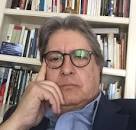 A presentation by Martí scholar Emilio J. Sánchez on José Martí‘s war diaries, published posthumously as Diario de campaña. Martí’s first entries were written on April 9, 1895, two days before disembarking in Cuba to take part in what would be the Island’s last War of Independence. The last entry is dated May 17, two days before his death in Dos Ríos, where he fell under Spanish fire. Dr. Sánchez offers a fresh and insightful perspective on this seminal work not only for its historical value, but also within the context of Martí’s literary legacy.
A presentation by Martí scholar Emilio J. Sánchez on José Martí‘s war diaries, published posthumously as Diario de campaña. Martí’s first entries were written on April 9, 1895, two days before disembarking in Cuba to take part in what would be the Island’s last War of Independence. The last entry is dated May 17, two days before his death in Dos Ríos, where he fell under Spanish fire. Dr. Sánchez offers a fresh and insightful perspective on this seminal work not only for its historical value, but also within the context of Martí’s literary legacy.
The presentation will be followed by a Q&A with Prof. Sánchez, moderated by Manuel Rodríguez Ramos, director of our Martí Studies Program.
GENERAL ADMISSION: FREE
TO WATCH THE PRESENTATION, CLICK HERE ON THE SCHEDULED DATE AND TIME:
https://youtu.be/T0wdkCFVytY
To participate in the Q&A via Zoom after the streaming, click here:
https://us06web.zoom.us/j/89526024766
This event is part of our CreateNYC Language Access Series on Cuban History, Art, and Literature. It will be held in Spanish.
 Emilio J. Sanchez has worked as a Spanish Editor with the United Nations and as Copy Editor for several Spanish publications in U.S., including El Nuevo Herald and Diario Las Américas, where he has also published articles and interviews, among other outlets. He has taught at the Abraham Fischler College of Education, Nova Southeastern University. He is an effective speaker and writer and an accomplished pedagogue, with more than 25 years of experience as a professor of Social Sciences, Literature and Journalism. Sánchez currently hosts the weekly program Comentando on the WLRN-Channel 17, PBS. He has published articles and offered talks on the life and work of José Martí and in 2022 designed and taught a course program Martí: La palabra at the American Museum of the Cuban Diaspora in Miami. He holds a Bachelor’s degree in Classical Languages and Literature from the University of Havana and a Ph.D. in Philosophical Sciences from Taras Shevchenko University in Ukraine.
Emilio J. Sanchez has worked as a Spanish Editor with the United Nations and as Copy Editor for several Spanish publications in U.S., including El Nuevo Herald and Diario Las Américas, where he has also published articles and interviews, among other outlets. He has taught at the Abraham Fischler College of Education, Nova Southeastern University. He is an effective speaker and writer and an accomplished pedagogue, with more than 25 years of experience as a professor of Social Sciences, Literature and Journalism. Sánchez currently hosts the weekly program Comentando on the WLRN-Channel 17, PBS. He has published articles and offered talks on the life and work of José Martí and in 2022 designed and taught a course program Martí: La palabra at the American Museum of the Cuban Diaspora in Miami. He holds a Bachelor’s degree in Classical Languages and Literature from the University of Havana and a Ph.D. in Philosophical Sciences from Taras Shevchenko University in Ukraine.
This event is supported, in part, by public funds from the New York City Department of Cultural Affairs in partnership with the City Council, and made possible by the New York State Council on the Arts and the New York State Legislature.
![]()
![]()
With the promotional cooperation of 14yMedio, Rialta, and Diario de Cuba
![]()

![]()